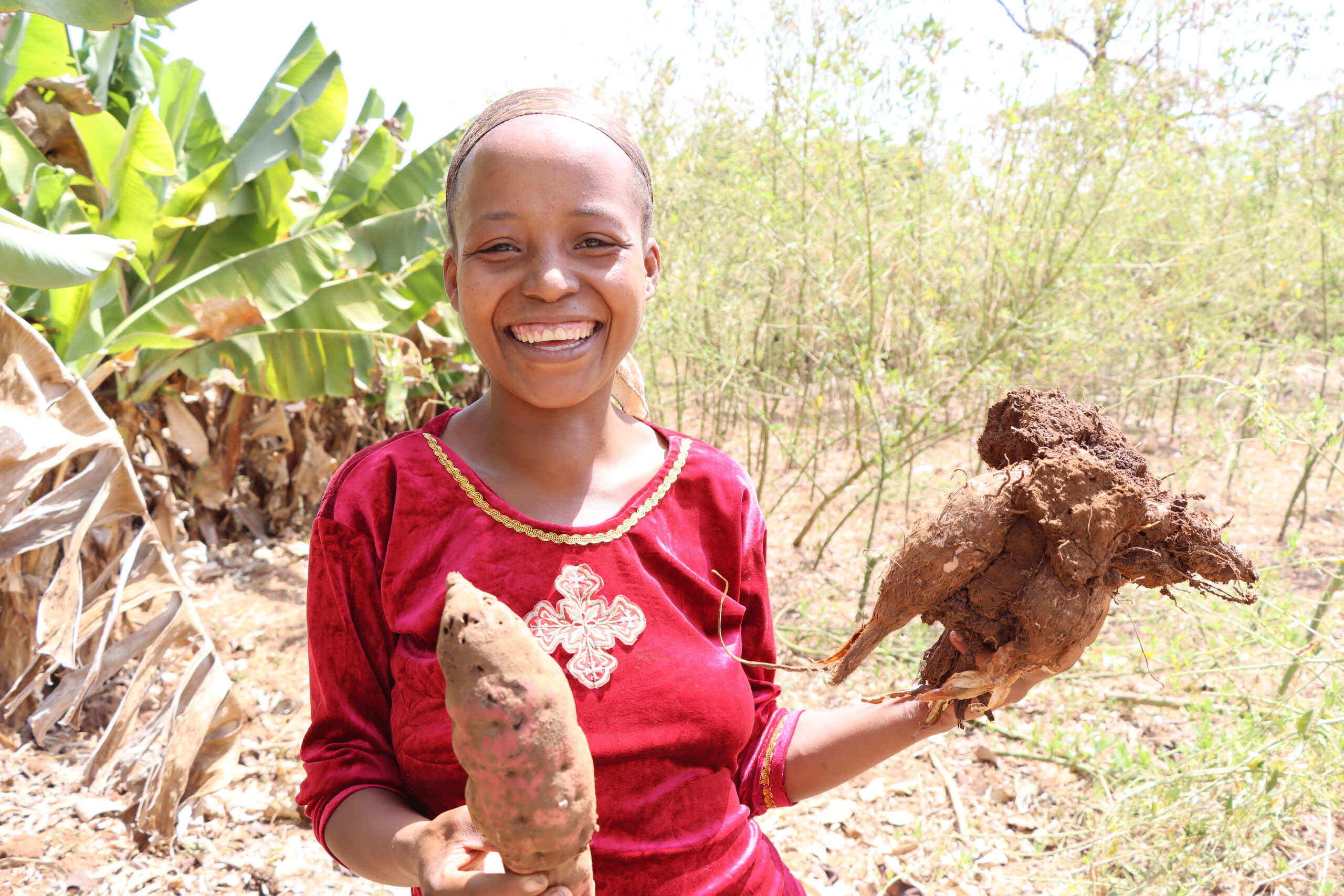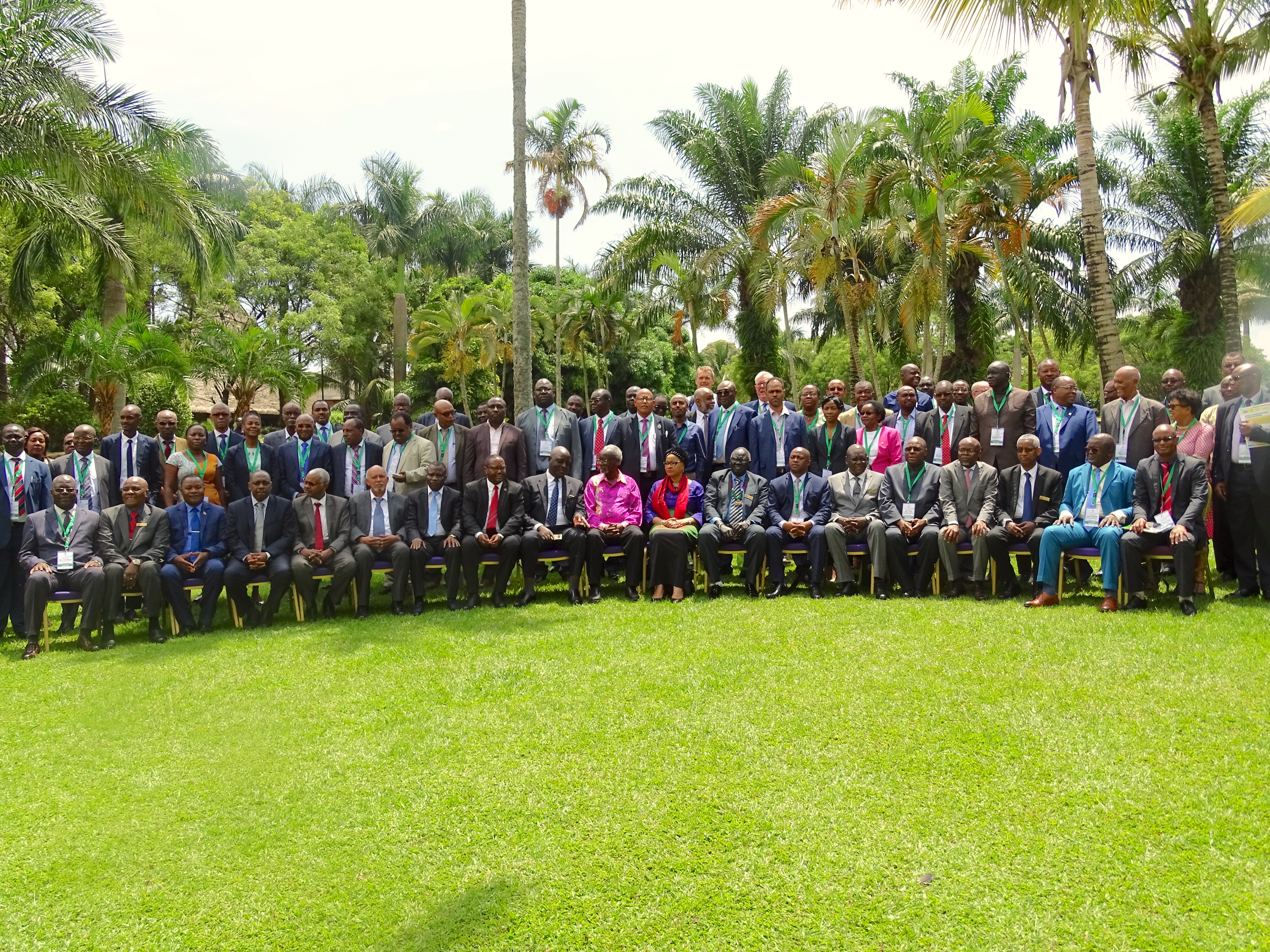
At just 25 years of age, Tigist Adamo’s experience epitomized the daily realities of countless smallholder farmers in South Ethiopia. Confronted by declining crop yields, scarce resources, and exhausted soils, Tigist faced a future clouded with uncertainty. Traditional agricultural practices had left her land depleted and her capacity to support her family increasingly fragile.
Yet, a serendipitous moment would mark the beginning of a profound transformation.
“Thanks to the Scaling Conservation Agriculture-based Sustainable Intensification (SCASI) project implementing partners,” Tigist recalls, “we feed the soil, and the soil is feeding back.”
While visiting a local animal health post, Tigist came across a training session on conservation agriculture (CA). Driven by curiosity, she joined the session—unaware that it would become a defining moment in her farming journey.
The training introduced a suite of climate-smart and sustainable practices, including:
- Mulching to retain soil moisture and suppress weed growth
- Intercropping to enhance biodiversity and system resilience
- Organic fertilization, such as composting, to improve soil structure and fertility
With cautious optimism, Tigist piloted these methods on a 10m x 10m plot. The results were striking. Motivated by the visible improvements in soil health and crop performance, she scaled her efforts to 0.5 hectares, fully adopting CA principles, including minimum tillage, crop rotation, and vermicomposting.
Results that Speak Volumes
From just 0.25 hectares, Tigist achieved impressive yields:
- 300 kg of maize
- 100 kg of haricot beans
- 300 kg of pigeon peas
- In addition to diversified harvests of taro and sweet potatoes
This diversification not only improved household dietary diversity but also strengthened her income. With her agricultural earnings, Tigist made a strategic investment—purchasing a motorbike valued at 80,000 Ethiopian Birr (ETB). She now rents it out as an additional source of income, further enhancing her financial stability.
From Subsistence to Resilience
In less than three years, Tigist transitioned from near-subsistence farming to a more secure and prosperous livelihood. No longer merely surviving, she is now thriving—her success a testament to the potential of conservation agriculture when paired with access to knowledge and resources.
Beyond her personal transformation, Tigist has become a catalyst for change within her community. Her achievements have inspired neighboring farmers, particularly youth, to explore sustainable farming practices. Today, she stands as a local ambassador for conservation agriculture, contributing to broader goals of food and nutrition security, climate resilience, and economic empowerment in rural Ethiopia.
The Scaling Conservation Agriculture-based Sustainable Intensification (SCASI) project is a nationally aligned initiative led by CIMMYT, in close collaboration with Canadian Foodgrains Bank network, NGOs—including Food for Hunger Ethiopia, Migbare Senay Children and Family Support Organization, and Terepeza Development Association—and regional Bureaus of Agriculture (BoAs). Financially supported by the Development Fund of Norway, the project is designed to strengthen Ethiopia’s agricultural systems by improving soil health and sustainably increasing the productivity of major crops. Through science-based solutions and strong partnerships, SCASI contributes to a more resilient and climate-smart agrifood system.

 Climate adaptation and mitigation
Climate adaptation and mitigation